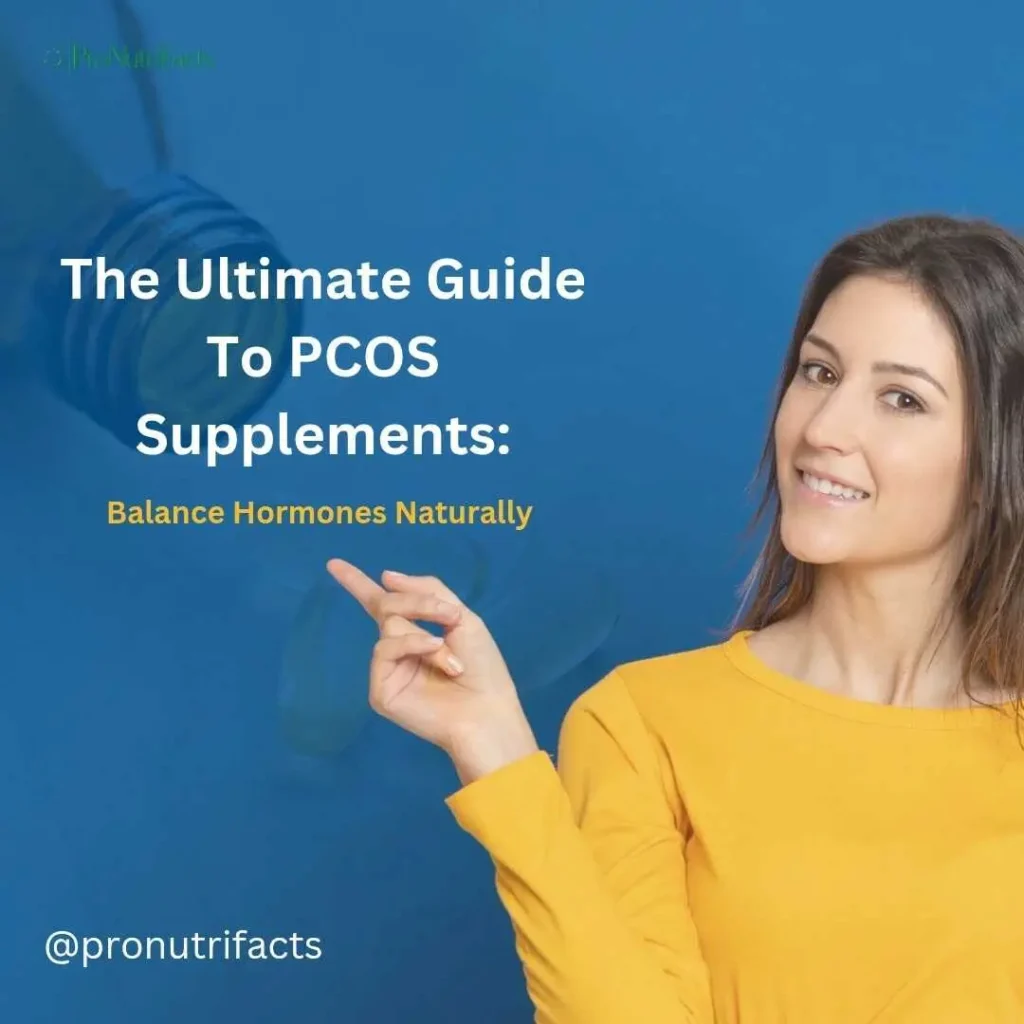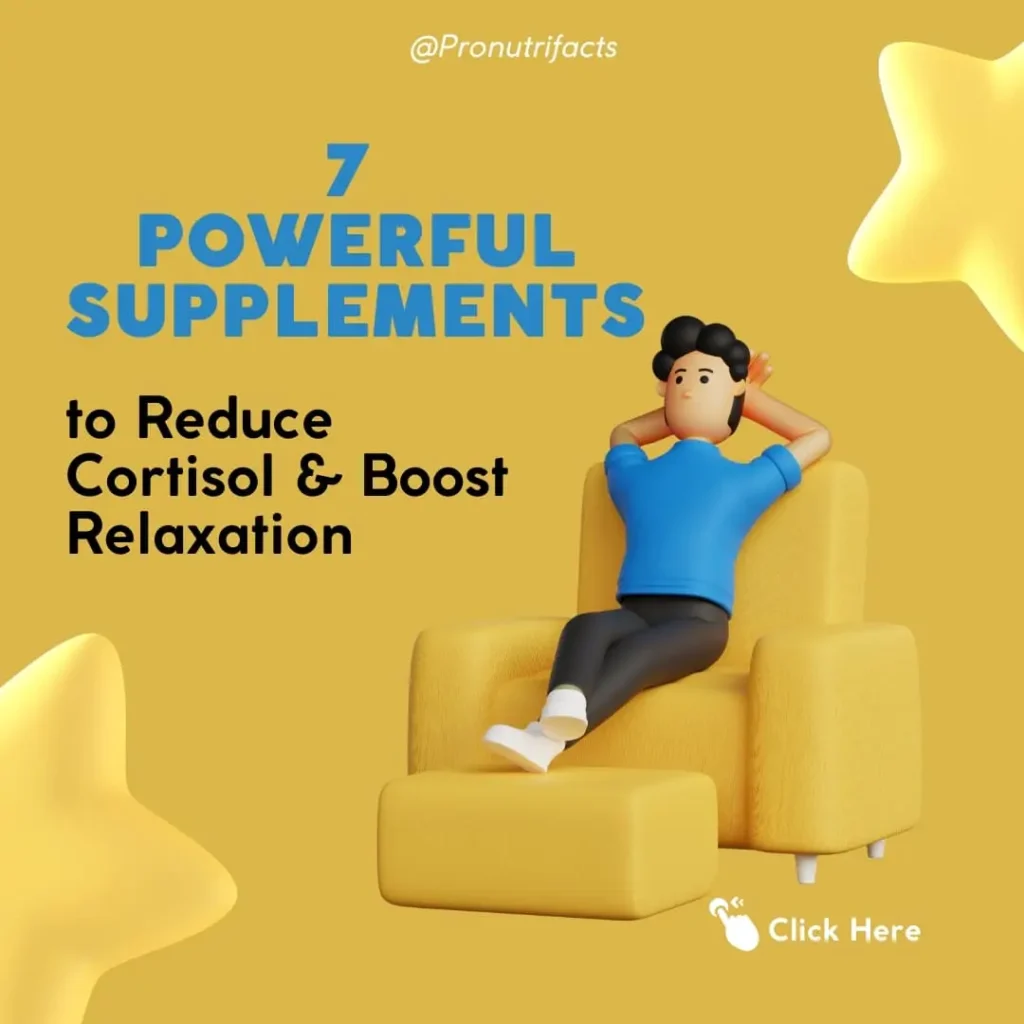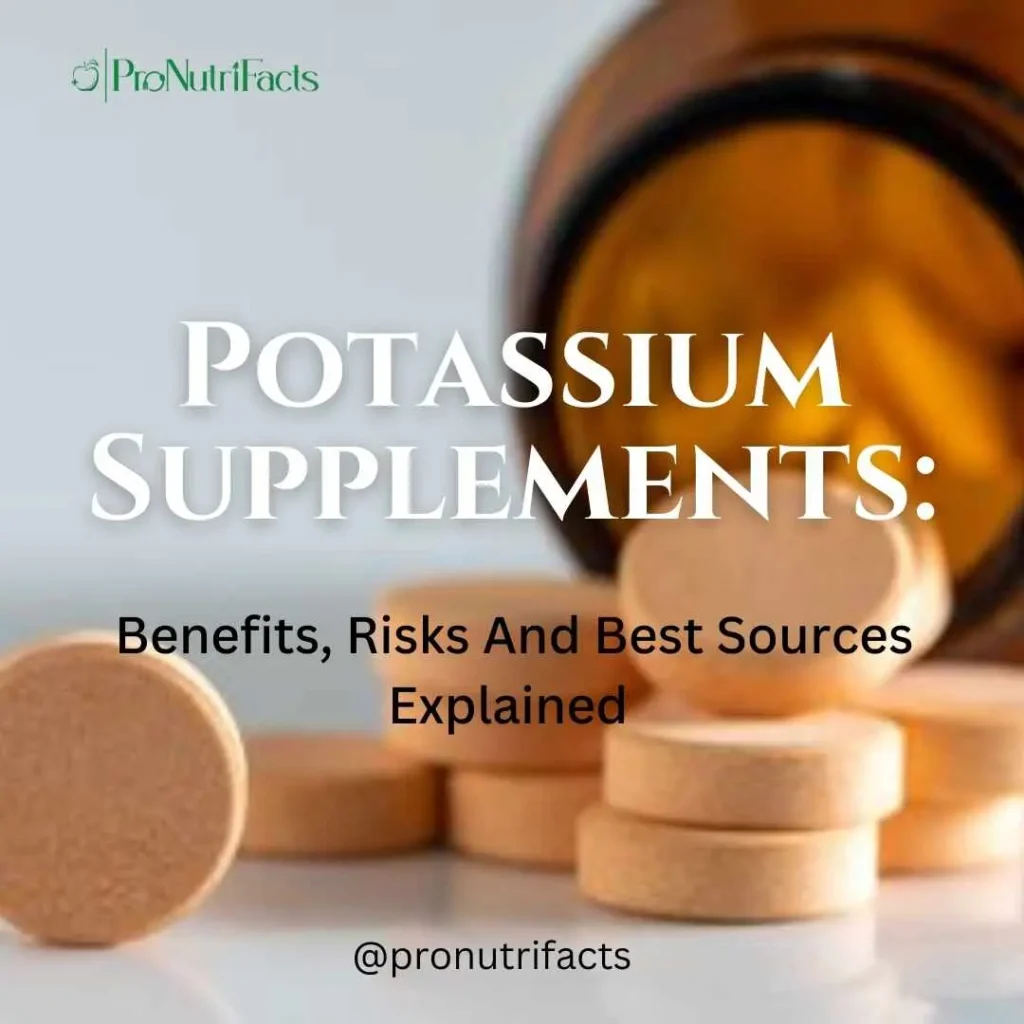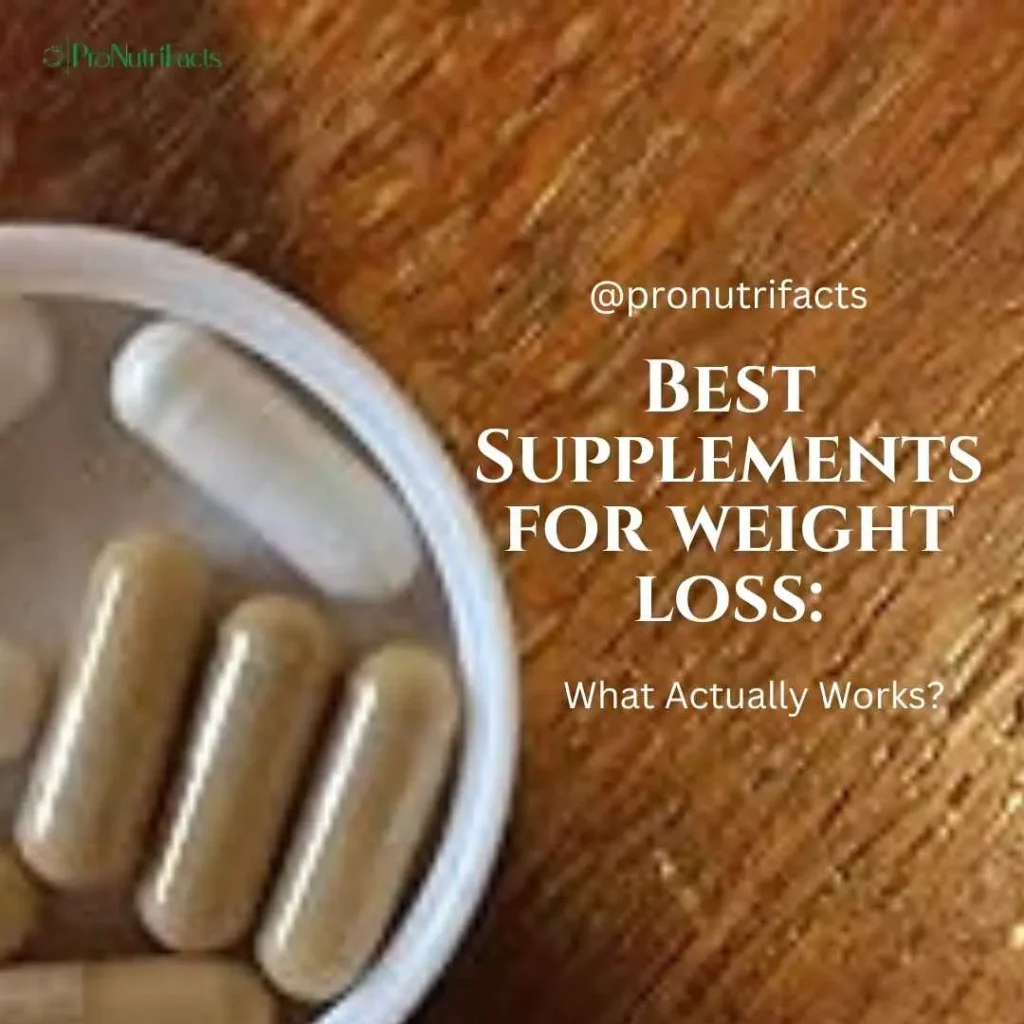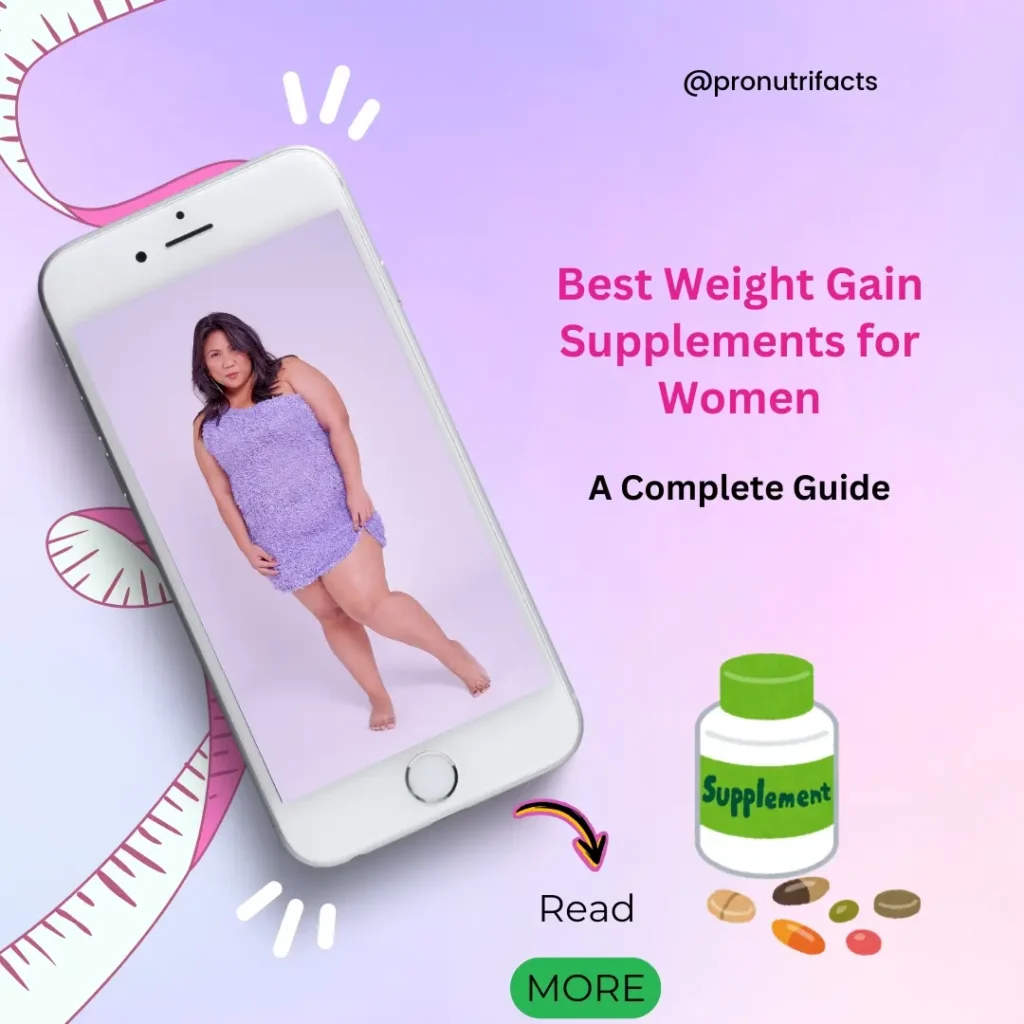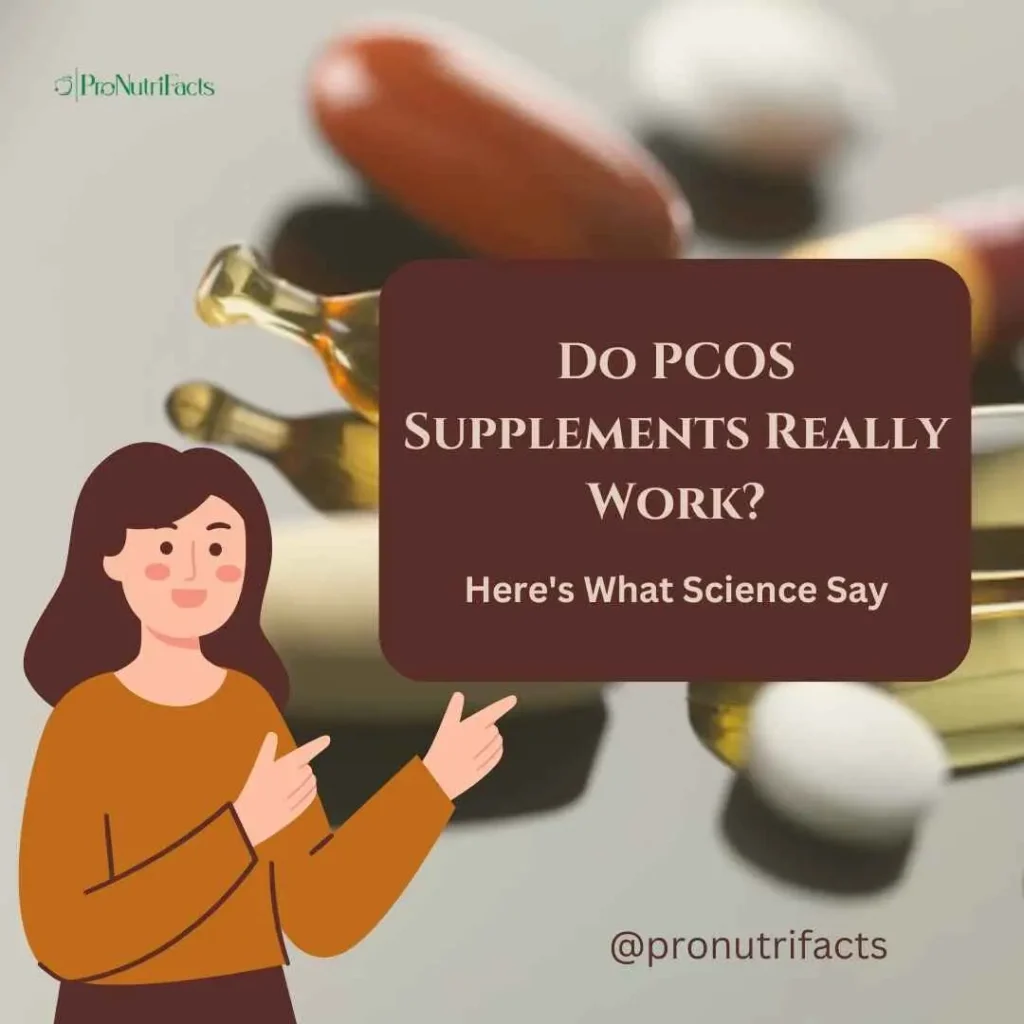Polycystic Ovary Syndrome (PCOS) is a hormonal disorder that affects metabolism, fertility, and overall health. It disrupts the balance of key hormones like insulin and androgens, leading to symptoms such as irregular periods, weight gain, and excessive hair growth. Left unmanaged, PCOS can increase the risk of diabetes, heart disease, and other complications. Balancing hormones naturally is essential for reducing PCOS symptoms and improving well-being. When hormone levels are stabilized, it becomes easier to regulate periods, support weight management, and enhance fertility. So, let us learn about PCOS Supplements.
Supplements play a key role in supporting hormone balance and addressing PCOS-related concerns. The right nutrients can help manage insulin resistance, lower inflammation, and reduce symptoms like hair loss and fatigue. However, supplements work best when combined with a healthy diet and lifestyle changes.
This guide will cover the best PCOS supplements for weight loss, hormone regulation, and fertility support. You’ll learn which ingredients to look for, what to avoid, and how to choose high-quality supplements. By the end, you’ll have a clear understanding of how to use supplements effectively for PCOS management. So, let’s explore
Best PCOS Supplements
Inositol: The Insulin Regulator
Inositol improves insulin sensitivity, making it easier for the body to regulate blood sugar. It supports ovarian function, helping to promote regular menstrual cycles and reduce acne and excess hair growth. The most effective ratio for PCOS is 40:1 Myo-inositol to D-chiro-inositol.
Omega-3 Fatty Acids: The Inflammation Fighter
Omega-3s reduce chronic inflammation, which can worsen PCOS symptoms and hormone imbalances. They also improve insulin response, helping the body maintain better blood sugar control. The best sources include fish oil, flaxseeds, and chia seeds.
Quick Take: Lowers inflammation and balances hormones. Look for high-quality fish oil.
Vitamin D: The Hormone Booster
Vitamin D plays a crucial role in regulating ovulation and maintaining regular menstrual cycles. It also supports insulin function, reducing the risk of insulin resistance in women with PCOS. Many women with PCOS have low vitamin D levels, making supplementation essential.
Quick Take: Helps regulate menstrual cycles and insulin. Get sun exposure or supplement if deficient.
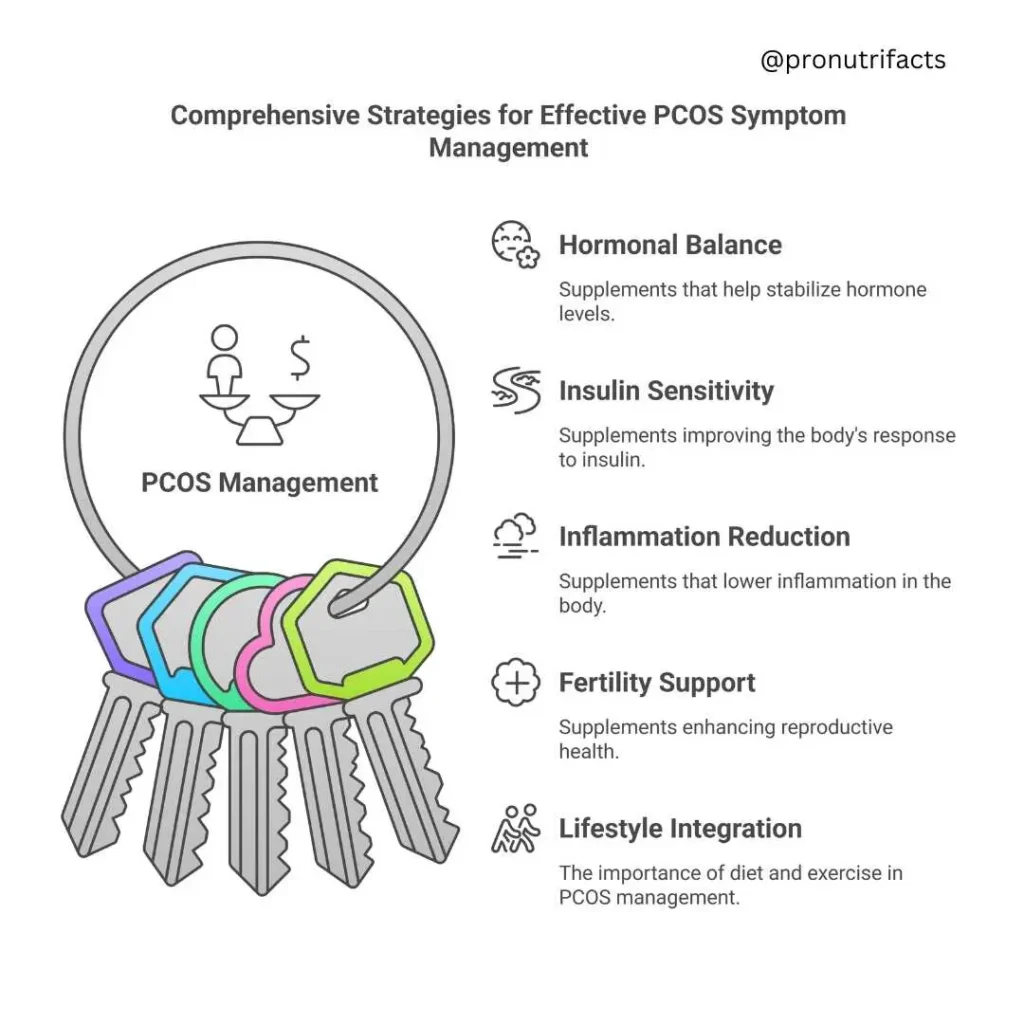
Magnesium: The Stress & Sugar Regulator
Magnesium helps control blood sugar and enhances insulin sensitivity, making it beneficial for PCOS management. It also reduces cortisol levels, which can disrupt hormone balance and contribute to stress-related weight gain. Magnesium glycinate or citrate are the best forms for better absorption.
Quick Take: Lowers stress and blood sugar. Take magnesium glycinate at night for better sleep.
Zinc: The Androgen Controller
Zinc helps regulate hormones by reducing excess androgens, which improves acne and hair loss associated with PCOS. It also strengthens immune function and supports skin health. The best sources include oysters, nuts, seeds, or supplements if dietary intake is low.
Quick Take: Supports hormone balance and skin health.
Additional Supplements for PCOS Support
N-Acetyl Cysteine (NAC): The Detoxifier
NAC boosts glutathione, the body’s most powerful antioxidant, helping to protect cells from damage. It supports liver detoxification, which plays a crucial role in reducing hormonal imbalances linked to PCOS. Research also shows NAC improves ovulation and fertility, making it a valuable supplement for reproductive health.
Quick Take: Supports detox and fertility. Great add-on for PCOS.
Berberine: The Metformin Alternative
Berberine works similarly to Metformin by improving insulin sensitivity and lowering blood sugar levels. It also supports gut health, reducing inflammation and aiding in weight loss—two key factors in PCOS management. This natural compound may help regulate periods and improve metabolic function.
Quick Take: Natural alternative to Metformin for blood sugar control.
Probiotics: The Gut Balancer
A healthy gut plays a key role in hormone balance, and probiotics support digestive health by improving gut microbiota. They help reduce bloating, inflammation, and digestive discomfort, which are common in women with PCOS. Choosing a high-quality, multi-strain probiotic can improve overall well-being and hormonal regulation.
Quick Take: Balances hormones through gut health. Choose high-quality, multi-strain probiotics.
What NOT to Take for PCOS
Common Supplements to Avoid
Some supplements may seem beneficial but can actually worsen PCOS symptoms. Choosing the wrong ones can lead to hormonal imbalances, skin issues, or unnecessary side effects. Here’s what to avoid:
- Soy-Based Supplements – Some women with PCOS are sensitive to soy, as it can disrupt estrogen levels and potentially interfere with hormone balance.
- High-Dose Biotin – While biotin is often promoted for hair and skin health, excessive intake can worsen acne, especially for those prone to breakouts.
- Excessive Iron Supplements – PCOS is not always linked to iron deficiency, and taking too much iron can lead to digestive issues and oxidative stress. Only supplement if a doctor confirms a deficiency.
- Unregulated Herbal Blends – Many PCOS herbal supplements lack proper research or dosages, making them risky. Some may disrupt hormones further, leading to irregular cycles or unwanted side effects.
Quick Take: Stick to science-backed supplements like inositol, vitamin D, and omega-3s. Always consult a healthcare professional before adding new supplements to your routine.

How to Choose the Right PCOS Supplements
Quality Over Quantity
Not all supplements are created equal, so choosing high-quality options is key. Look for third-party tested supplements to ensure purity and potency. Avoid products with fillers, artificial additives, and low-quality ingredients that may do more harm than good.
Dosage and Timing
The form of a supplement matters just as much as the dosage. For example, magnesium glycinate is more easily absorbed than magnesium oxide. Following recommended dosages is essential to prevent imbalances and maximize benefits. Taking supplements at the right time can also improve their effectiveness.
Stacking Supplements for Maximum Effect
Certain supplements work better when taken together. Inositol paired with folate enhances insulin function and hormone balance. Omega-3s and vitamin D complement each other, improving absorption and anti-inflammatory effects. Taking magnesium at night can support relaxation, stress relief, and better sleep.
Quick Take: Pick high-quality, third-party tested supplements and stack them correctly for best results.
Lifestyle & Diet Support for PCOS Supplements
Anti-Inflammatory Diet
A nutrient-dense diet helps manage PCOS symptoms and supports hormone balance. Focus on whole foods, lean proteins, healthy fats, and fiber-rich carbohydrates to reduce inflammation. Avoid processed foods, refined sugars, and inflammatory oils, which can worsen insulin resistance and hormonal imbalances.
Managing Insulin Resistance
Stabilizing blood sugar is essential for managing PCOS. Prioritize protein and fiber at every meal to slow glucose absorption and prevent insulin spikes. Regular movement, such as strength training and walking, improves insulin sensitivity and overall metabolic health.
Stress Management & Sleep
Chronic stress raises cortisol levels, which can disrupt hormones and worsen symptoms. Managing stress through deep breathing, yoga, or journaling can help regulate cortisol and support hormone balance. Getting 7-9 hours of quality sleep is also essential for recovery, metabolism, and overall well-being.
Quick Take: Supplements work best with a balanced diet, movement & stress management.
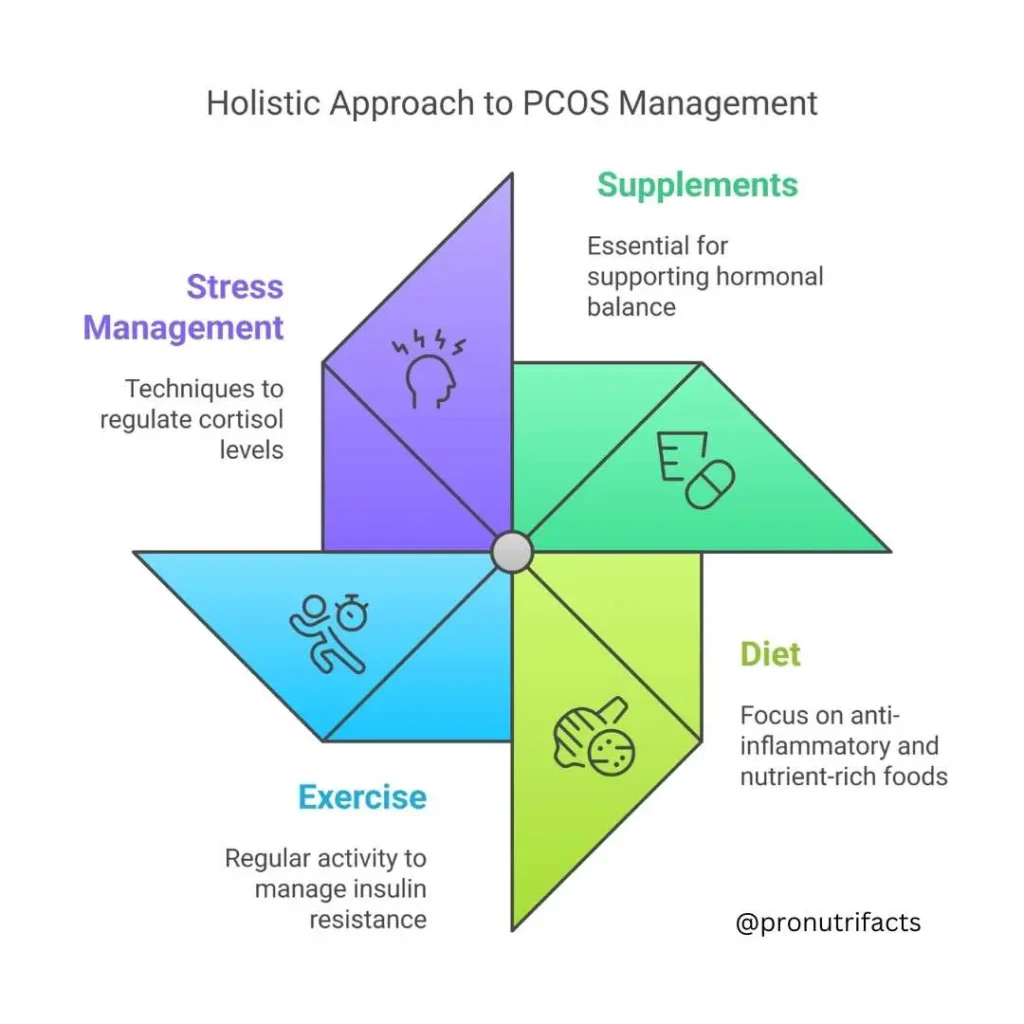
Quick-Reference PCOS Supplement Table
| Supplement | Main Benefit | How It Helps PCOS | Best Sources |
| Inositol | Improves insulin sensitivity | Supports ovulation, reduces acne | Myo-inositol & D-chiro-inositol blend |
| Omega-3 | Reduces inflammation | Supports hormone balance & insulin regulation | Fish oil, flaxseeds, chia seeds |
| Vitamin D | Regulates ovulation | Helps insulin function & menstrual cycles | Sunlight, supplements |
| Magnesium | Supports blood sugar control | Lowers cortisol & reduces stress | Magnesium glycinate, leafy greens |
| Zinc | Regulates androgens | Reduces acne, hair loss | Oysters, nuts, pumpkin seeds |
| NAC | Boosts glutathione | Supports detox, improves fertility | Supplements only |
| Berberine | Improves insulin sensitivity | Natural alternative to Metformin | Supplements only |
| Probiotics | Supports gut health | Reduces bloating, balances hormones | Fermented foods, supplements |
Summing Up!
Incorporating the right supplements into your routine can significantly support hormone balance and overall well-being for women with PCOS. Inositol, Omega-3, and Vitamin D are among the best supplements for managing insulin sensitivity, reducing inflammation, and promoting healthy ovulation. These supplements work best when paired with a balanced diet and lifestyle changes, such as managing stress and prioritizing sleep.
To get started, here’s a simple checklist:
- Start with Inositol, Omega-3, and Vitamin D.
- Eat whole, anti-inflammatory foods.
- Engage in regular physical activity.
- Manage stress and ensure quality sleep.
Remember, balancing hormones is a gradual process, and consistency is key. While supplements can make a significant difference, it’s important to be patient and track your progress over time. By taking a holistic approach and giving your body the support it needs, you can improve your PCOS symptoms and overall health. Explore Pronutrifacts for more wellness tips!
